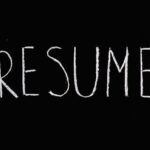Interviews can be nerve-wracking, but with the right preparation, you can approach them with confidence. One of the best ways to prepare is by familiarizing yourself with common interview questions and crafting strong, well-structured responses. In this post, we’ll break down frequently asked interview questions and provide sample answers to help you stand out.
1. Tell Me About Yourself
Purpose: To assess your background, communication skills, and how well you align with the job.
Sample Answer: “I am a marketing professional with over five years of experience specializing in digital marketing and content creation. I started my career as a content writer at XYZ Company, where I developed engaging content that increased website traffic by 30% in one year. Currently, I am a digital marketing strategist at ABC Corp, where I lead campaigns that have driven a 15% increase in online sales. I am excited about this opportunity because it aligns with my passion for data-driven marketing and brand development.”
2. Why Do You Want to Work Here?
Purpose: To gauge your knowledge of the company and your motivation for applying.
Sample Answer: “I admire your company’s commitment to innovation and customer satisfaction. After researching your recent projects, particularly the launch of your new app that has revolutionized user engagement, I am impressed by how effectively you incorporate user feedback. I am eager to contribute my experience in product management to further enhance your product offerings and drive continued success.”
3. What Are Your Strengths?
Purpose: To identify key skills relevant to the role.
Sample Answer: “One of my greatest strengths is my ability to analyze complex data and derive actionable insights. In my previous role, I led a data analysis project that identified key market trends, resulting in a 20% increase in targeted marketing effectiveness. Additionally, I am highly organized and adept at managing multiple projects simultaneously without compromising quality.”
4. What Is Your Greatest Weakness?
Purpose: To assess self-awareness and growth mindset.
Sample Answer: “In the past, I struggled with delegation because I was concerned about maintaining quality standards. However, I have been actively working on this by identifying the strengths of my team members and trusting them with responsibilities. This approach has not only improved team dynamics but also enhanced overall productivity.”
5. Describe a Challenging Situation and How You Handled It.
Purpose: To evaluate problem-solving and interpersonal skills.
Sample Answer: “During a critical project at my last job, a key team member left unexpectedly, causing a significant delay. I quickly stepped in to redistribute tasks, prioritized essential deliverables, and communicated openly with stakeholders to manage expectations. By fostering collaboration and maintaining clear communication, we successfully delivered the project on time and received positive feedback from the client.”
6. Where Do You See Yourself in Five Years?
Purpose: To understand your career goals and alignment with the company.
Sample Answer: “In five years, I aim to have advanced to a leadership role within the project management department, overseeing cross-functional teams and driving strategic initiatives. I am particularly interested in expanding my expertise in agile methodologies and leading complex projects that align with the company’s mission and long-term objectives.”
7. Why Should We Hire You?
Purpose: To determine your unique value proposition.
Sample Answer: “I bring a unique combination of technical expertise in software development and a proven track record of delivering successful projects on time and within budget. My recent project at XYZ Corp resulted in a 25% reduction in development time while maintaining high-quality standards. I am confident that my skills and proactive approach will add significant value to your team and contribute to achieving your project goals.”
SEE ALSO: How to Research a Company Before Your Interview
Preparing for common interview questions is crucial to presenting yourself as a confident and capable candidate. Practice your responses, focus on providing specific examples, and tailor your answers to the job and company. By approaching each question with a structured response, you can effectively convey your qualifications and leave a lasting positive impression on your interviewer.






